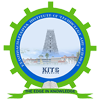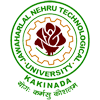Menu
Introduction and Purpose:
- Introduction: As members of Krishna Chaitanya Institute of Technology and Sciences College community, all administrative officers are responsible for sustaining highest ethical standards of this institution, and of the broader community in which they function. The college values integrity, honesty and fairness and strives to integrate these values into its teaching, research and Extension practices.
- Purpose In that spirit, this Code (the “Code”) is a shared statement of the College’s commitment to uphold the ethical, professional and legal standards as basis for daily and long-term decisions and actions. It helps disseminate awareness to all involved to create an educational environment characterized by clarity, transparency and affinity.
- Violations Adherence to this Code also makes all members responsible for bringing suspected violations of applicable standards, policies, laws or regulations to the attention of the appropriate cognizant office. Act within the range of an allowed individual authority in all matters and in the best interests of the institute. Equity and Justice People are to be treated fairly – not discriminated against, abused or exploited. Justice is concerned with power sharing and preventing the abuse of power. In an equitable community all members can access opportunities that allow for their full participation in that community.
- The institute will not tolerate harassment (and personal harassment), discrimination, unsafe work practices, fraud, or other unethical conduct. Members are expected to abide by the institute’s Code of Conduct.
- Discrimination-direct or indirect, Under Equal Opportunity legislation, discrimination occurs when a person, or a group of people, are treated less favorably than another person or group, in the same or similar circumstances, because of irrelevant attributes such as their age; race (including color, descent, national or ethnic origin); sex; marital status, pregnancy, or family responsibilities; disability; political or religious conviction; and sexual orientation or gender history.
- Prevention and Resolution of Campus Ragging/Bullying The institution acknowledges that all employees and students have the right to work and study in an environment free from bullying. The college has a duty of care to all members of its community and violence, aggression and bullying are unacceptable. A workplace situation may be identified as bullying if an employee or employees are harmed, intimidated, threatened, victimized, undermined, offended, degraded, or humiliated, whether alone or in front of other employees, students or visitors to the college.
- Sexual Harassment is unwelcome, unsolicited and unreciprocated conduct with a sexual component which offends, intimidates, embarrasses or humiliates a person.
- Academic Freedom Academic freedom is recognized and protected by college as essential to proper conduct of teaching, research and scholarship. Freedom of intellectual thought and enquiry and open exchange of ideas and evidence are a college core value.
- All members of the Institution must act lawfully, comply with all relevant legislative and industrial requirements, act within their delegations of authority, and comply with college policies.
- Confidentiality Staff members who have access to official college documentation and information must take care to maintain the integrity, confidentiality and privacy of such information to protect any individual concerned. Members of the college should also undertake to maintain privacy of oral communications where that has been requested.
- Fraud and Corruption The college Policy on Fraud and Corruption, in conjunction with the Guidelines for Dealing with Fraud and Corruption at Krishna Chaitanya Institute of Technology and Sciences, clarifies the responsibilities of all college staff in creating an honest, ethical and professional workplace, and outlines the requirements and protocols for raising issues of suspected fraud and corruption and the conducting of investigations.
- Ethical Conduct of Research Krishna Chaitanya Institute of Technology and Sciences college expects all those engaged in research to observe high ethical standards in the conduct of that research and, when relevant, to comply with the obligations imposed by the codes of practice as outlined by the college and other relevant funding bodies. Ethical clearances must be gained where appropriate.
- Recruit with a commitment to diversity and inclusion.
- Communicate opinions to others in a fair and constructive manner.
- A standard of Integrity and Quality Krishna Chaitanya Institute of Technology and Sciences recognizes that it must earn reputation for integrity that includes, but is not limited to, compliance with laws and regulations and its contractual obligations. Even the appearance of misconduct or impropriety can be very damaging to the institution.
- Financial Reporting All University accounts, financial reports, tax returns, expense must be accurate, clear and complete. All entries in the college books and records, including departmental accounts and individual expense reports, must accurately reflect each transaction.
- Reporting Suspected Violations: Reporting to Management Members of the Krishna Chaitanya Institute of Technology and Sciences community should report suspected violations of applicable laws, regulations, government contract and grant requirements or this Code. Members should not ignore violation of conduct of others. It is obligatory to report any violation which falls in framework of codes. Cooperation of all employees are expected to cooperate fully in the investigation of any misconduct.
Code of conduct of Krishna Chaitanya Institute of Technology and Sciences clarifies institute’s mission, vision and principles, linking them with standards of professional conduct. The code articulates the values the organization wishes to foster in its administrators, staff, students and other employees and, in doing so, defines desired behavior.
- To built self esteem and dignity among girl students and ladies faculty members. To offer service such as counseling, legal aid in case of atrocities against women. To create awareness regarding women rights.
- To avoid and prohibit sexual harassment at workplace. To arrange programs regarding health, personality development etc.
Any noncompliance with the code of conduct should be reported to Internal Compliant Committee.




